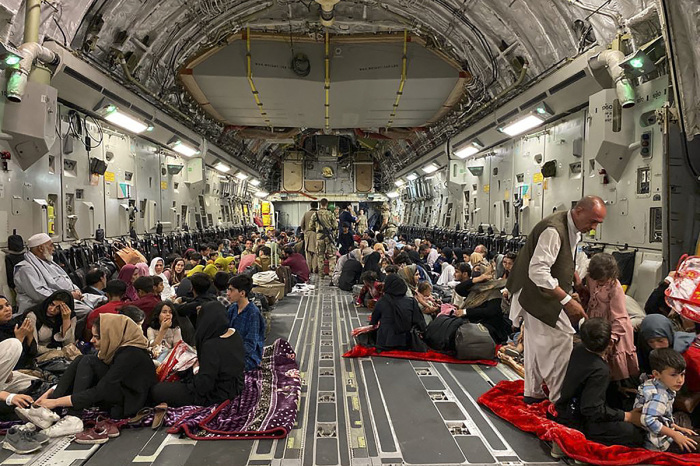The Christian Post's top 10 news stories of 2021 (part 2)

3. US withdraws from Afghanistan, Taliban takes control
A dozen U.S. citizens and their families have yet to be evacuated from Afghanistan following the withdrawal of U.S. and allied forces in August, and 62,000 Afghan interpreters and others who’ve applied for visas were also left behind, the U.S. State Department recently told The Wall Street Journal.
Although the U.S. and its allies evacuated over 100,000 Afghans, some of whom made it onto evacuation flights at Kabul airport without the requisite paperwork, former soldiers and nonprofit organizations have raised concerns that religious minorities and many of those who worked alongside U.S. and NATO troops and now face the greatest risk from the Taliban were not evacuated.
In its latest update, the State Department said more than 70,000 Afghan evacuees are now living in the U.S., and 479 Americans and 450 U.S. residents have been relocated since departing Afghanistan.
Amid the resettlement process, concerns have been raised over reports of male Afghan evacuees being accompanied by child brides and girls reporting that they were raped by men who used them in an attempt to expedite their evacuation to the U.S., United Kingdom or Europe.
In September, it was reported that the State Department sought “urgent guidance” from other agencies after child brides were brought to the Fort McCoy U.S. Army base in Wisconsin, and Afghan girls at a transit site in Abu Dhabi said they had been raped by older men they were forced to marry.
Later that month, two Afghan men were indicted by a federal grand jury on separate charges of forcibly engaging in a sexual act with children and assaulting a woman by strangling and suffocating her while being housed at Fort McCoy.
Following the August withdrawal, a poll released by Rasmussen Reports found that 52% of likely voters thought President Joe Biden should resign over the Afghanistan debacle.
Less than a month after the U.S. withdrew troops from Afghanistan, photos and video surfaced showing that Taliban militants were carrying out mass executions of as many as 30 to 40 people at a time, according to Christian missionary David Eubank, a former U.S. Army Special Forces and Ranger officer.
Christians in Afghanistan also now face a greater risk of persecution, including torture, beatings and execution, after the Taliban's takeover.
The U.S. Commission on International Religious Freedom warned that there are “credible reports” of Taliban reprisals and ongoing violence committed against the country’s religious minorities.
In a “factsheet” released in November, USCIRF said it has “documented and received credible reports of violence including executions, disappearances, evictions, desecration of houses of worship, beatings, harassment, and threats of violence to members of particularly vulnerable religious communities” since the Taliban took control of the country on Aug. 15.
Afghan Christians, Ahmadi Muslims, Baha’is and nonbelievers cannot express their faiths or beliefs openly “because they face dire consequences, including death, if discovered by the Taliban,” the commission added.
Many Christian ministries also lost contact with their partners in Afghanistan who had maintained communication with the underground Church. Christians who remain in the county strive to maintain a low profile to avoid being tortured or executed by radical Islamic militants.
Soon after the Taliban’s takeover, reports emerged that Islamic Sharia law was being enforced and punishments being meted out included the amputation of limbs and public executions.
Likewise, during a women-led protest against the Taliban’s takeover, some women and the journalists who covered the demonstrations endured beatings by militants who used “batons and whips,” while others were killed by the Taliban who shot “live ammunition” into the crowds.
The United Nations did little other than to release a statement condemning the Taliban’s actions at the time.
Melissa Barnhart contributed to this report.




























